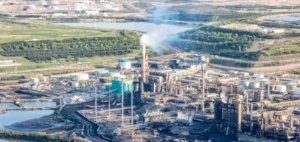Ecuadorian authorities announced on March 22 that an oil spill had been identified in a pipeline running through Napo province in the eastern Amazon region. The Ministry of Energy stated that the cause of the spill was considered to be an act of sabotage, although the extent of the damage was not specified. This incident follows another pipeline rupture less than two weeks prior, which discharged approximately 3,800 barrels of crude oil into several rivers along the Pacific coast, affecting drinking water supplies for local communities.
Threat to hydroelectric infrastructure
The Ministry of Energy indicated that preventive measures were being taken to avoid contamination of the Coca Codo Sinclair hydroelectric plant, located near the Coca River. This energy complex, with a generation capacity of 1,500 megawatts, supplies around 30% of the country’s electricity demand. The plant is currently operating at 1,100 megawatts, but a decision regarding a possible temporary shutdown is expected within hours.
Electricity supply to remain stable
In anticipation of a potential shutdown, the ministry assured that thermal power plants and energy barges would be able to maintain supply across the country. This statement aims to prevent a repeat of the electricity shortages experienced in 2024, when the country faced outages of up to 14 hours a day due to an exceptional drought that severely impacted hydroelectric production.
A tense political context
Minister of Energy Inés Manzano stated that several acts of sabotage were targeting oil infrastructure in a tense electoral context. President Daniel Noboa, in office since November 2023, is set to face opposition candidate Luisa González in the second round of the presidential election scheduled for April 13. This political climate adds pressure on the government as the energy sector remains a major pillar of the national economy.
A strategic sector for the economy
Ecuador produces approximately 475,000 barrels of crude oil per day, according to figures for 2024. This resource is one of the country’s main economic drivers, generating export revenues estimated at $8.6bn for the year. Potential disruptions due to technical failures or criminal actions on pipelines could increase the vulnerability of the national energy and financial system.






















